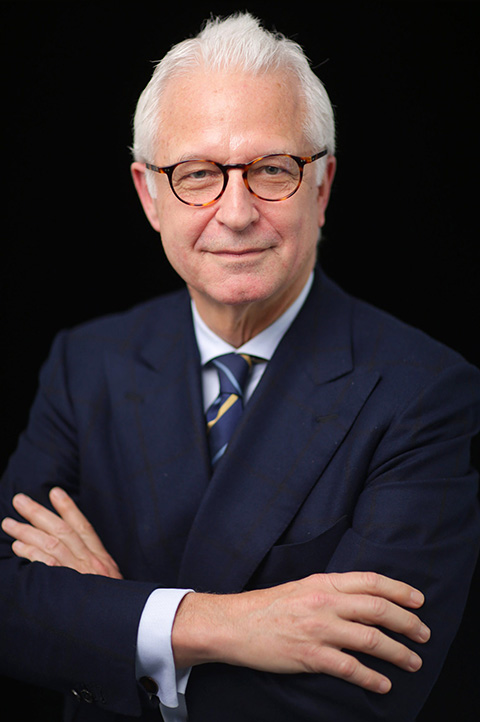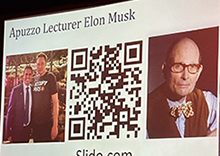
As I write this, I’m headed back to New York after attending the annual meeting of the Congress of Neurological Surgeons. CNS is one of the largest, most important professional conferences of the year for neurosurgeons, and I always come back inspired. This year I find myself thinking about the spirit of innovation — the drive that developed neurosurgery throughout the twentieth century, exponentially so over the past 20 years.
Innovation is driven by scientific curiosity, by the refusal to accept the status quo, and by those “aha!” moments when new ideas are born. Innovation sparks progress, and I am truly humbled to work with a group of clinicians, researchers, and educators who continue to innovate in neurosurgery.
At the CNS meeting, I listened to Elon Musk deliver the Michael L.J. Apuzzo Lecture on Creativity and Innovation, focused on the emerging field of brain-computer interfaces. Several members of the Weill Cornell faculty have a book in production now on this topic, advised by Dr. Apuzzo himself.

Elon Musk delivers the 2024 Michael L.J. Apuzzo Lecture at CNS
Mike Apuzzo has been a champion of innovation and creativity for decades, and I am so glad to count him among our department’s esteemed advisors.
Innovation here, however, is not limited to brain-computer interfaces. Many of our spine faculty members are working with emerging VR and AR applications in the operating room, and are at the forefront of spatial computing technology in surgery. At CNS, I was proud to listen to one of our residents, Dr. Umberto Tosi, present his abstract on a novel monoclonal antibody designed to disrupt the growth of high-grade gliomas. Back at home, one of our epilepsy researchers, Dr. James Niemeyer, was named a Young Investigator for his work into seizure propagation and resident Nalini Tata, MD, MPP, was selected as a 2024-2025 White House Fellow.
Across the board, in every subspeciality within neurosurgery, Weill Cornell faculty continue to push the boundaries, searching for new answers for Parkinson’s and Alzheimer’s diseases, brain tumors, stroke, spinal deformity and degeneration, and more. See this story about Dr. Kaplitt’s continued advancement in focused ultrasound technology, and please be sure to visit us on social media, on YouTube, and in your podcast player, where we continue the quest for the “aha” moments that drive us every day.